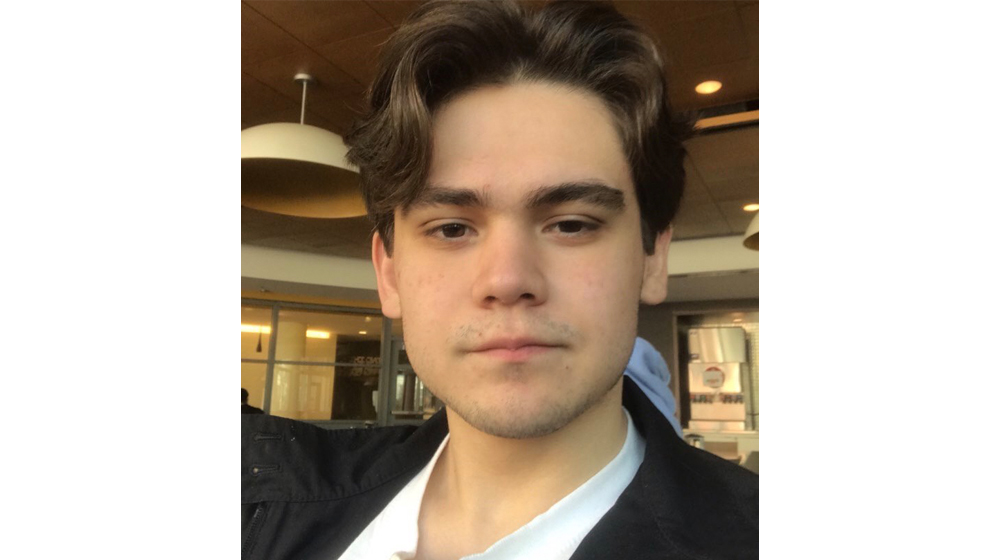On the Homefront

| March 20, 2020 |
|---|
Gabriel (Gabe) Paredes-Reyes
Major: Multimedia Journalism, Minor in Marketing and Spanish Literature
Year: Freshman
Hometown: Omaha, Nebraska but born in Venezuela
What was your initial reaction to Loyola’s suspension of face-to-face classes?
Everyone kind of knew throughout spring break and the week leading up to it. Monday and Tuesday, I didn’t really believe it. It just didn't seem real. It might get shut down, but I’d give it a 60% chance. Then Wednesday happened and things were getting worse. We knew they were going to send out a message and we were going to be out. The first few minutes were exciting because we were going home, but then it was sad.
What are some of the hardest parts about this transition?
Saying goodbye to friends and leaving this Chicago life behind.
Every day is different, and I couldn’t get picked up until Wednesday, so I was in the dorms for a while. I've been kind of lonely. At least we have laptops so our education is kind of somewhat intact, but just thinking about the kids in CPS who might not really have a home life anyway. Food, I’m not struggling but I do have to put a little more effort into finding food now. Kids of all ages finding food is tough to think about. And just in general how is this going to affect us in the long run?
The education standpoint - how is this going to affect my grades and how do I do schoolwork. My job is secure, since I will be paid, so no complaints there. But my own mentality for how I go about my schoolwork. The biggest part of my life is about my schoolwork, I learn through the city and how I go about my projects. The fact that I won't be able to study at Loyola, in Chicago, and develop myself professionally and journalistically. Journalism can be done almost anywhere, and I will be trying to do stuff like that in Omaha, but it is really tough when you can't go and interview someone or shoot an event because there are no events. What if people don’t let me interview them in their houses? My realm is video, so I kind of need a visual interview or just visuals in general. Studying in Chicago is a big reason why I’m here.
How has this crisis shown you the beauty in humanity?
In general, people have been more human, per se. It's something I'm proud to be seeing, but it's something I expected. I think something that gives me peace of mind is looking back through history and looking at the events like these and how we’ve overcome them. For example, the Renaissance after the Dark Ages and those times. That was a big historical movement for new ideas, processes. It might not be that big of a scale as it was back then since we are so advanced now. But I think there's a big possibility to have something like that after this. You see people on twitter saying that there are so many processes that aren’t efficient, not in everyone's best interest. I’m sure there will be so many new ideas, processes, and government procedures. We are just now entering that time where we are grownups. We have the power, the responsibility to make those changes we want, and this is a great opportunity to do that. Especially with the election coming up.
How are you going to stay positive and motivated during quarantine?
Remembering the good opportunity, I mentioned and taking all this time to prepare for that. It's a good mindset to have. As college students, we shouldn't be worried about the short term. This is the least of our worries as long as we stay healthy and the world doesn't completely fall apart. This is a good time to reflect on how we see our society behave to this virus and in general to how our world processes are being put to the test right now and start thinking about how to make those things better. Put yourself in a situation where you have something to show after this. When we're back to normal and socializing, we will have something to show for this. When we are getting into the professional world, it'll be obvious to see who used their time wisely and who didn't. It gives us a good opportunity to advance professionally and as a society.
Interview by Sydney Owens. Edited and condensed for clarity.
